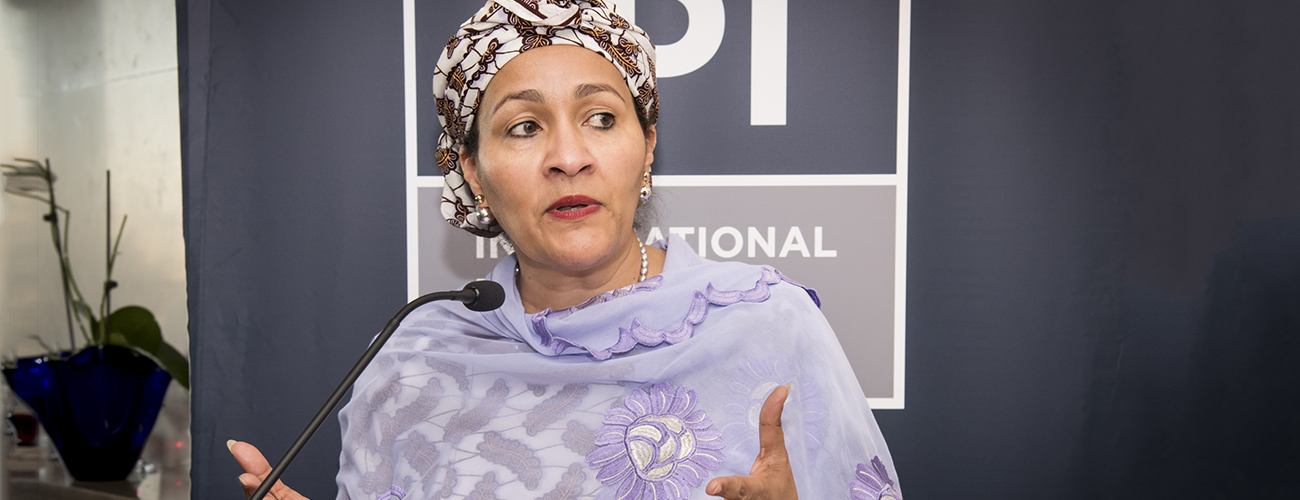Did you attend? Find yourself in our photo gallery of the event on Facebook >>
Amina Mohammed, the Deputy Secretary-General of the United Nations, told a thronged reception at IPI that the gender parity policy that she and Secretary-General António Guterres have championed at the UN must run through the entire organization.
“We want to see gender parity not just at the level of USG and ASG in positions of decision-making—that is incredibly important—but for sustainability, we realize that we don’t have many young women coming in at the bottom,” she said.
“Gender parity is not just about the top,” she told the overflow 777 Club gathering on March 16, 2017. “It’s about the bottom up and our institutions at the country level generating discussion that when you go to help countries, more than half the number of people around the table creating solutions are women, and that will engender the possibilities, the integrity, the expertise that women have to look at different dimensions and bring the solutions.”
She acknowledged the challenge of breaking out of the UN bubble and said that the best way of doing that might be deepening the engagement with the young.
“I don’t think there is a better way of breaking that than using young people who today don’t see borders. They don’t see what the old people see, many like us, but they will if the intergenerational handover that we do doesn’t involve them.”
She said she had taken heart during the current Commission on the Status of Women (CSW) meetings at the enthusiasm she had encountered. “That’s even more special that we’re here in CSW week and we’re speaking together,” she said. “I enjoy not just the joy and energy around the UN, but when we walk into those rooms that are usually full of men, there are a lot of women.”
She reminded people that it had been two decades since the phrase “women’s rights are human rights” arose but warned that here was a need to keep pressing the point and at undiminished volume. “In some places we’re losing a lot of those gains that we had and we ought to ask, ‘What’s gone wrong 20 years later?” she said. “I’m sure at the time we said that, we’d never have thought that 20 years on we’d still be saying it, sometimes screaming at the top of our voices.”
She spoke fondly of the Sustainable Development Goals (SDGs). “I’m often asked which of the SDGs are my favorite, and I will continue to say, ‘You know, they’re like my kids. Every single one of them is special, but together they’re amazing.’
“And that’s how everyone ought to take them,” she asserted. “Because if you know the work that went into creating every single one of them, you’ll remember they’ve got many parents.”
She noted the Secretary-General’s emphasis on prevention, the 2030 Agenda, and “sustaining peace,” and said they represented the best way to bring people together around global goals.
“Leave people behind anywhere in the world, and you’ll get unexpected results,” she said, mentioning terrorism and migration as two of them. “We’re challenged by that across the world—it’s not just about the developing world, but it’s about a world that has lost its moral compass, and we have to try to bring that back again.”
She praised IPI for being a “huge supporter of the integration of gender into its events” and said she drew inspiration for the future from the dedication represented by the people in the room. “The people in this room give me a lot of hope,” she said.
“There’s many of you here who do this as your day job, and night job. That commitment and passion—we want to open up the door to make sure that we ‘do’ rather than just talk about it. We’ve talked and we’ve negotiated, we’ve written, and now we have these tools, and we have to take them out there.”








